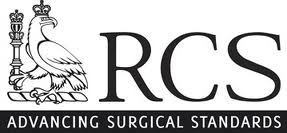 Professional Standards for Cosmetic Practice
Professional Standards for Cosmetic Practice
Cosmetic surgery and cosmetic treatments are in the news. In the wake of the PIP scandal, a long-overdue review of the cosmetic surgery industry’s regulation is expected in March of this year following a review led by Sir Bruce Keogh (NHS medical director).
Now the Royal College of Surgeons has issued its own cosmetic practice report, following a review by a Working Group including surgeons, psychiatrists, psychologists and dermatologists.
Their report confirms what organisations such as BAAPs have already advocated, that the industry needs better control in the interests of patient welfare.
Key findings and recommendations included:
- all cosmetic procedures AND non-surgical procedures (including botox and fillers) should only be administered by qualified medical professionals (doctors, dentists, nurses) who have undertaken appropriate training. Currently anyone can administer popular filler injections
- all cosmetic procedures should be carried out on licensed premises (so no more “mobile botox” providers or “botox parties”)
- patients should be advised about any potential side effects
Mr Steve Cannon, Chairman of the Working Party, commented:
“With the demand for cosmetic surgery and non-surgical treatments rising year on year, it is crucial that the highest level of professionalism is maintained amongst practitioners.”
President of the Royal College of Surgeons, Professor Norman Williams added:
“We have serious concerns that not all those who offer cosmetic procedures are adequately qualified, or that patients are getting accurate information prior to treatment. We hope these standards will feed into the ongoing review of the industry led by the NHS Medical Director, Sir Bruce Keogh, and improve quality of care for patients going forward.”
Find a Botox Doctor
Dr Quinn, who founded Quinn Clinics and has treated literally thousands of patients over his career in aesthetic medicine, shares his advice on choosing a cosmetic treatments provider:
1. Check the qualifications
Ask what training the practitioner has had and how many procedures they have done previously. In most countries in Europe, only doctors are allowed to carry out injectible procedures, which requires at least 5 years training at the very minimum.
2. Where will the procedure be carried out?
Cosmetic injections are classed as medical procedures and should be carried out in a medical clinic. Look for clinics registered with the CQC (Care, Quality Commission), who have to meet rigorous standards.
3. What products do you use and why?
4. What do I do if I have a problem?
Cosmetic treatments are never entirely risk-free, however rare. Ask your doctor, what complications you could expect and what happens if there is a problem.
Aesthetic Medicine Doctor in Bristol and London
To discuss cosmetic treatments in confidence, please arrange to see Dr John Quinn who has many years experience in fillers and botox® and even trains other medical professionals in his skills and techniques.
Quinn Clinics offer a full range of cosmetic, medical and laser skin treatments, including popular Botox and dermal fillers to tackle lines and wrinkles as well as IPL facial laser and CO2 and radio-frequency treatment.
Call 0117 924 4592 or email info@quinnclinics.co.uk for further information.
